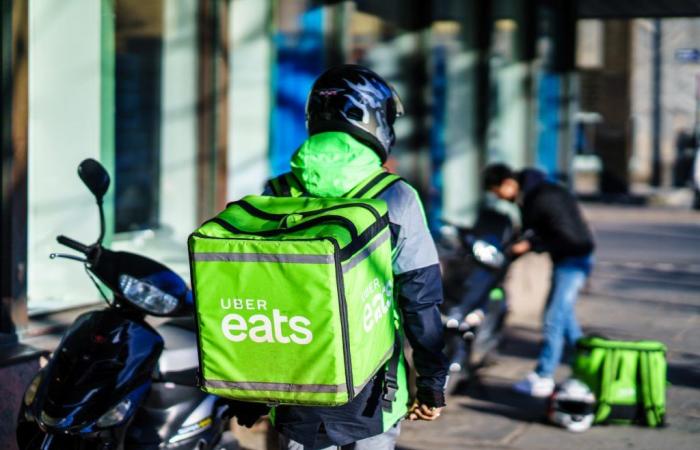Are drivers of passenger or goods transport platforms sufficiently protected against attempts by these same platforms to make “the most of them”, the LSAP deputies are essentially asking? et or even the OGBL and the LCGB. .
“Less than two months after Uber announced its partnership with Webtaxi, a second multinational platform has announced its arrival in Luxembourg. Just like Uber, Bolt is known for its practices of social dumping and false self-employment,” the OGBL fumes in a press release. “Bolt claims to be already in contact with drivers and certainly has no intention of setting up in compliance with Luxembourg labour law and the collective agreement for the taxi sector. This announcement is certainly also the result of the arrival of Uber, which was openly celebrated by the liberal-conservative government and the Minister of Mobility.”
Independents… too dependent?
“While the drivers who work for the Uber platform are all employees of the Luxembourg partner, it would appear that according to the economic model planned by Bolt, their drivers would clearly all be self-employed,” adds the LCGB. “This is all the more worrying, since the platform asks them for lower commissions than the competition. Thus, this aggressive pricing practice could be to the detriment of the existence of these drivers.”
In a parliamentary response, the Minister of Labour, (CSV), provides some clarifications, which will have to be seen in the light of the new European directive on platform workers. “The directive should ensure a balance between the protection of people working on digital platforms and who find themselves in a vulnerable situation, and the development of new business models that take advantage of the opportunities offered by digitalisation,” he said on 12 March when an agreement was reached in Europe, against the advice of France and Germany.
One, he said, “digital platforms of this type established in Luxembourg must have a proper establishment permit corresponding to their service offering. The type of permit required must be considered on a case-by-case basis depending on the activities of a company, knowing that a company may also have several different activities subject to an establishment permit.”
UberEats, mentioned in the parliamentary question, operates in Luxembourg from its Dutch entity and is therefore not “established in Luxembourg”, any more than Uber, which relies on its Luxembourg partner, Voyages Emile Weber, nor even Bolt, which would have to use professional taxi drivers who are themselves already subject to all the necessary registrations and whose head office is in Paris.
Upcoming legislation
The minister also assures that “the government is opposed to the creation of a third intermediate status that could create more precariousness for people performing work via a digital platform. These people can therefore only have the status of employee or self-employed”, the difference coming from the subordination contract between the platform and the delivery driver. “To assess whether there is a link of subordination in a case where they must qualify a contractual relationship, the judges rely on a bundle of evidence to form their conviction”, Mr. Mischo further specifies.
And then we get into the “subtlety” of the case law. In addition to the notion of permanent establishment – well-known in the contexts of taxation and financial centres, the famous “mailboxes” always a Luxembourg speciality – the minister limits the provision of services to “an absence of stable and continuous participation in the economy of the host Member State”, which invites us to understand that those who do not have a structure or partners will have to, one day, move to another organisation. Except, he finally specifies, that this stable and continuous participation is assessed on a case-by-case basis, always according to the case law of the Court of Justice of the European Union cited in his response.
The European directive that the Luxembourg legislator will have to “improve” – for the benefit of the worker, of course – provides for a presumption of an employment contract that the platform will have to contest in light of the way in which the relationship between the platform and the delivery driver operates.
At the end of the year, MoveEU, an organisation of stakeholders including Uber and Bolt, complained that two out of five criteria were sufficient to reclassify the relationship between them and a delivery driver. The five conditions were: imposing upper limits on the amount of money workers can receive; monitoring performance, including electronically; controlling the distribution or allocation of tasks; controlling working conditions and imposing restrictions on the choice of working hours; imposing restrictions on workers’ freedom to organise their work; and imposing rules on workers’ appearance or conduct.
It is interesting to look at the other two market players mentioned in the question: they do not have the same interpretation of the law. WeDely has two permits, one for “commercial activities and services” and the other for “transport of goods by road” while Goosty only has one for “commercial activities and services”.
The conditions a delivery person must meet to be paid the best. (Source: site internet de WeDely)
In its online section, the delivery candidate for Goosty must be self-employed or registered as a company. For WeDely, the candidate must have an establishment permit according to the list of necessary documents and promises up to 20 euros per hour provided that the delivery person meets a certain number of conditions (number of deliveries, availability during peak hours that differ depending on weekdays and weekends).






